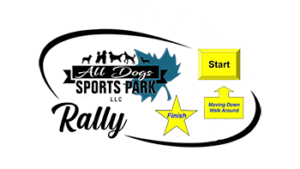A high-quality preschool experience can shape a child’s academic, emotional, and social foundation for years to come. At this critical stage of development, typically between the ages of 3 and 5, children begin to engage more deeply with the world around them. They ask questions, explore their surroundings, and begin to form relationships outside the family unit. Preschools that provide a balanced environment of structured learning and creative play offer the best growth opportunities. From early literacy to social-emotional learning, a strong preschool program is about more than letters and numbers—it’s about nurturing curiosity, confidence, and independence.
Exploring Preschool Options in Sugar Land
Families in Sugar Land, Texas, are fortunate to live in a community that highly values early childhood education. With a broad range of preschools—public, private, Montessori, religious, and language-immersion programs—parents here have access to educational philosophies and care models that meet diverse needs. Whether you’re looking for a part-time morning program or full-day learning, Sugar Land offers modern facilities, experienced educators, and curricula that align with both state education standards and best practices in child development. Many local preschools also offer extended care options, making them a practical solution for working families.
What Sets a Great Preschool Apart?
Experienced and Passionate Teachers
The heart of any preschool is its teachers. Look for educators who not only have the credentials (such as degrees in early childhood education) but also demonstrate warmth, patience, and enthusiasm. Effective preschool teachers understand how to guide young children through both academic learning and emotional development.
A Balanced Curriculum
Great preschools offer a mix of structured lessons and open-ended play. Children might spend part of their day practicing fine motor skills through art, then move on to group storytime or outdoor play. A well-rounded curriculum touches on literacy, math, science, social studies, and emotional learning in age-appropriate ways.
Safety and Cleanliness
Safe environments go beyond security doors and ID check-ins. They include childproofed classrooms, regular sanitation routines, and staff trained in emergency procedures. Be sure to ask about sick-child policies and how illnesses are handled.
What to Look for on a Preschool Tour
When visiting a potential preschool, pay attention to the classroom atmosphere. Are the children engaged? Do teachers get down on their level when speaking to them? Are the classrooms filled with artwork, books, and age-appropriate learning materials? Don’t be afraid to ask questions about teacher-to-student ratios, discipline strategies, and how milestones are tracked.
It’s also worth observing the daily schedule. Predictable routines help young children feel secure and give them a sense of mastery over their day. Look for a healthy balance of group time, independent play, meals, naps (if applicable), and outdoor activities.
How Preschool Supports Social Development
Preschool is often a child’s first experience interacting with peers in a structured environment. Learning how to share, take turns, express feelings, and resolve minor conflicts are essential skills that help prepare children for kindergarten and beyond. A preschool with strong social-emotional learning components will teach these concepts through stories, songs, cooperative games, and teacher-led discussions.
Working Parents: Finding Flexibility in Sugar Land
For working parents in Sugar Land, preschool isn’t just about education—it’s also about practicality. Many preschools in the area offer flexible scheduling options, such as part-time, full-day, or extended hours to accommodate a variety of work schedules. Some even provide holiday camps or summer enrichment programs to help bridge the gap between school years. This flexibility is especially valuable in dual-income households or for parents who commute into nearby Houston.
The Transition from Home to Preschool
Starting preschool can be a big adjustment for both children and parents. Look for programs that offer a gentle transition period, such as orientation days or shorter first weeks. Some preschools allow parents to stay for the first hour or offer gradual goodbyes to ease separation anxiety. Communication tools, like daily reports or classroom apps, help you stay connected with your child’s day even when you’re not physically there.
Preschool as a Stepping Stone to Kindergarten
A strong preschool program sets the stage for a smoother transition into kindergarten. Children who attend high-quality preschools tend to enter elementary school with stronger language skills, better self-regulation, and greater confidence in group settings. Look for programs that align with kindergarten readiness benchmarks in your local school district, especially if you plan to enroll in public school later.
FAQs
1. At what age can my child start preschool in Sugar Land?
Most preschools accept children between ages 3 and 5. Some programs may have younger age groups or pre-K classes for children closer to kindergarten age.
2. What’s the difference between daycare and preschool?
Daycare typically provides full-day care and may include babies and toddlers, while preschool focuses on early education for children 3–5, often with a structured curriculum and shorter hours.
3. Are there bilingual or Montessori preschools in Sugar Land?
Yes, Sugar Land offers a variety of specialized programs, including Montessori, Spanish immersion, and STEM-based preschools.
4. Do preschools provide meals or snacks?
It depends on the center. Some provide healthy meals and snacks, while others require parents to pack food. Be sure to ask during your tour.
5. How can I prepare my child for their first day of preschool?
Talk positively about the experience, visit the school beforehand if possible, read books about starting preschool, and establish a goodbye routine to help ease separation anxiety.



















